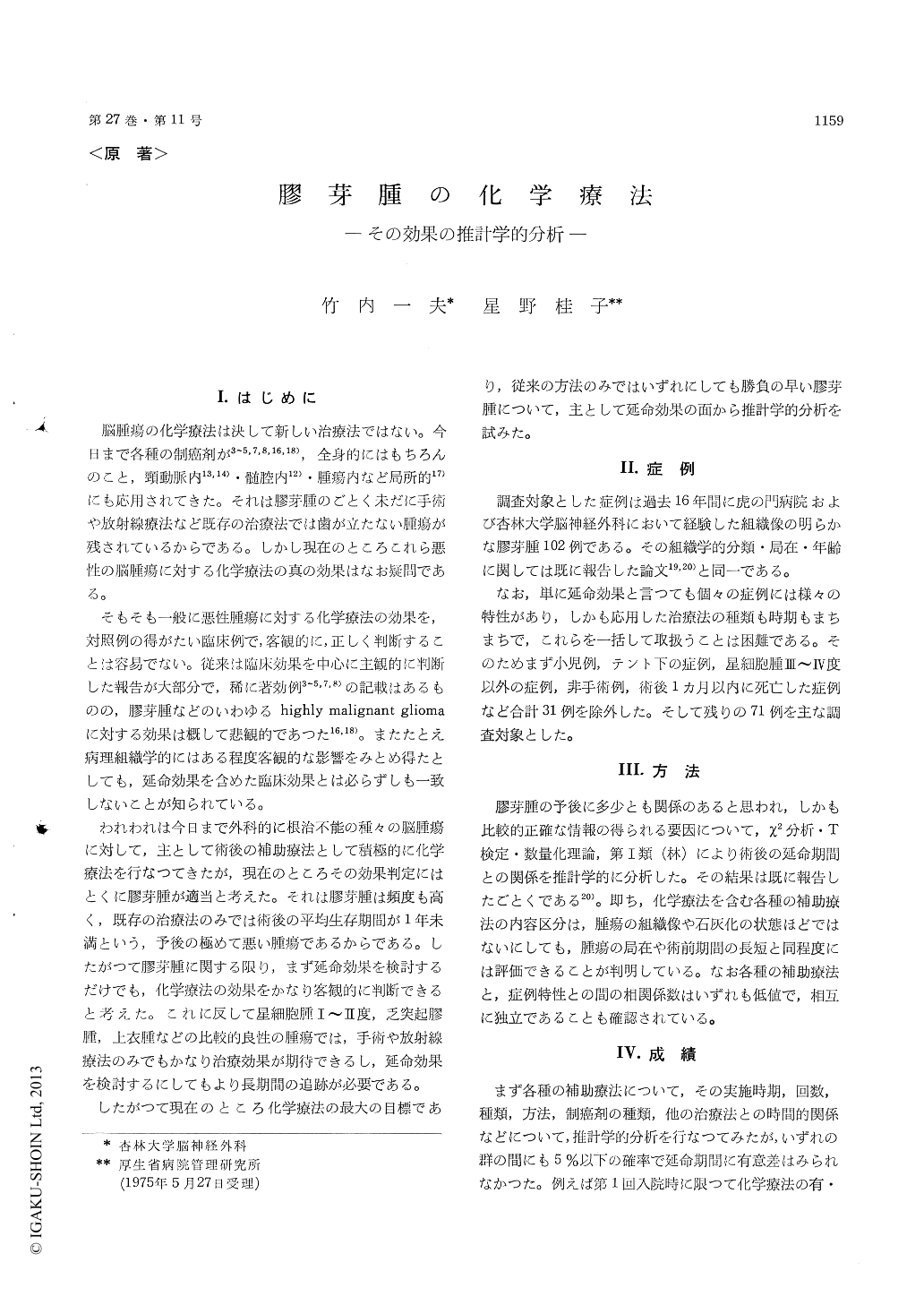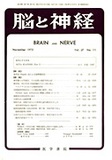Japanese
English
- 有料閲覧
- Abstract 文献概要
- 1ページ目 Look Inside
I.はじめに
脳腫瘍の化学療法は決して新しい治療法ではない。今日まで各種の制癌剤が3〜5,7,8,16,18),全身的にはもちろんのこと,頸動脈内13,14)・髄腔内12)・腫瘍内など局所的17)にも応用されてきた。それは膠芽腫のごとく未だに手術や放射線療法など既存の治療法では歯が立たない腫瘍が残されているからである。しかし現在のところこれら悪性の脳腫瘍に対する化学療法の真の効果はなお疑問である。
そもそも一般に悪性腫瘍に対する化学療法の効果を,対照例の得がたい臨床例で,客観的に,正しく判断することは容易でない。従来は臨床効果を中心に主観的に判断した報告が大部分で,稀に著効例3〜5,7,8)の記載はあるものの,膠芽腫などのいわゆるhighly malignant gliomaに対する効果は概して悲観的であつた16,18)。またたとえ病理組織学的にはある程度客観的な影響をみとめ得たとしても,延命効果を含めた臨床効果とは必らずしも一致しないことが知られている。
Glioblastoma multiforme has to date been themost common and lethal brain tumor to whichneither surgical nor radiation therapies have beenapplicable. It has therefore the main target ofchemotherapy in the neurosurgical field.
Statistical evaluation of the effect of chemotherapyon the duration of survival in the postoperativeperiod of 102 cases of glioblastoma multiformeresulted in the following conclusions: 1. Neitherindividual nor combined utilization of chemotherapyand radiotherapy have significant effect on theperiod of postoperative survival where glioblastomais concerned. 2. Even though a significant effectof chemotherapy could not be established statis-tically, it appears certain that it is as clinicallyeffective as radiotherapy which has received highacclaim of late. However, this would not alwaysequal the so-called "additive effect" of those treat-ments hitherto known. 3. Postoperative adjuvanttreatment, including chemotherapy, affects thepostoperative survival period as significantly as dothe factors of localization and histological findingsof the tumor.

Copyright © 1975, Igaku-Shoin Ltd. All rights reserved.


